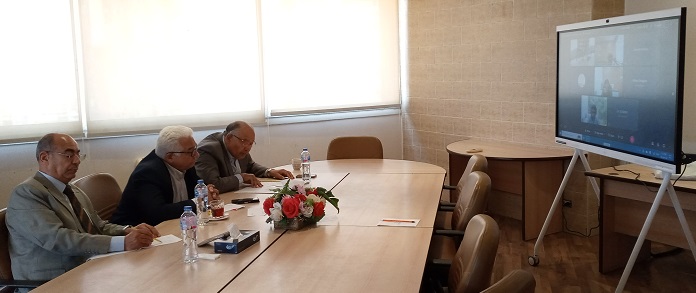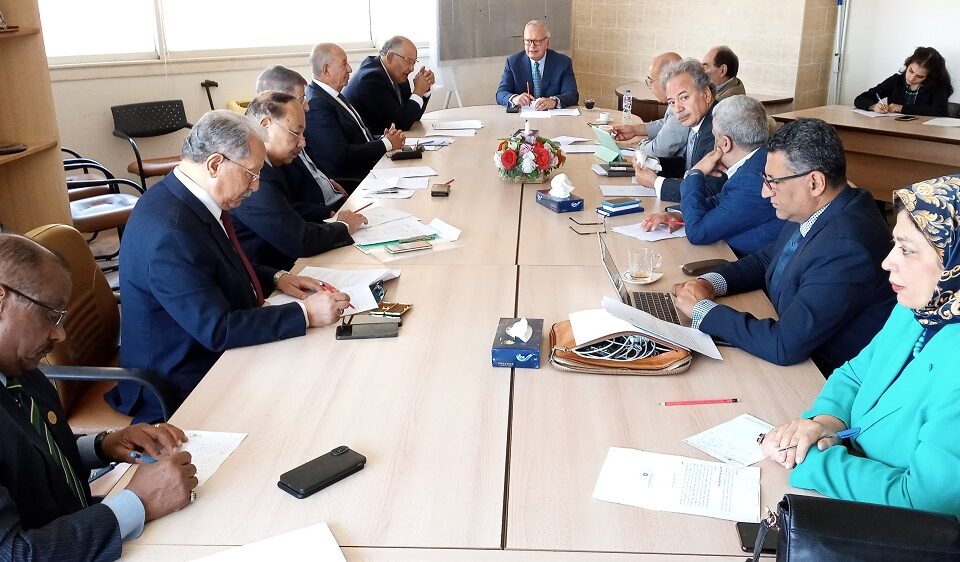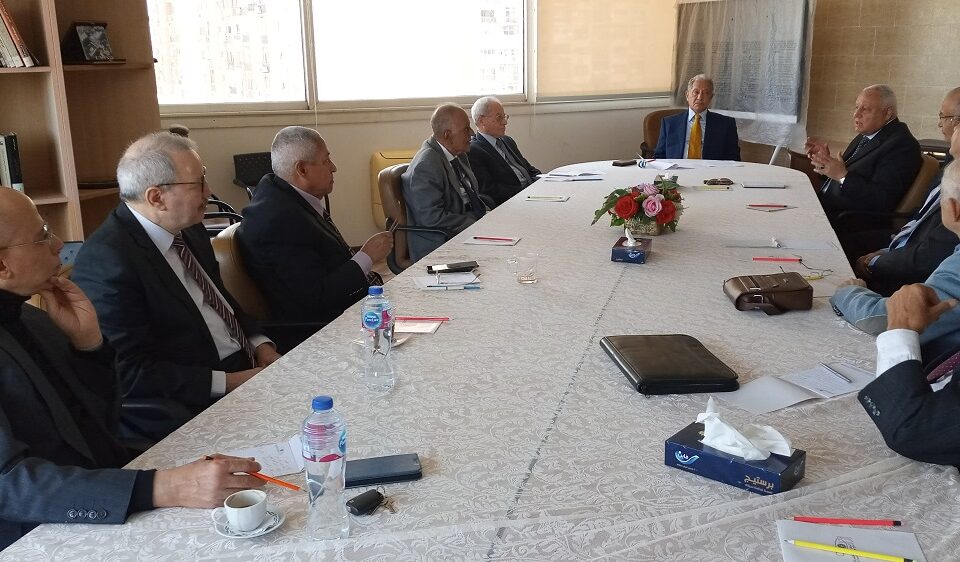Symposium on the Russian-Western crisis over Ukraine and its repercussions on the Middle East
March 1, 2022Symposium on the 6th European Union- African Union Summit and the Developments of Terrorist Expansion in Africa
March 20, 2022
On March 8, the Council organized a symposium on “The Implications of the Potential Nuclear Agreement with Iran on Major Powers Relations and Regional Security”, which was attended by a number of experts, academics and former ambassadors, ECFA members and non-members, including some former inspectors at the International Atomic Energy Agency. The proceedings of the symposium dealt with three main axes: Iran’s nuclear capabilities, and its proximity to the “breakthrough” point; Determinants of Iranian foreign policy during the era of Ebrahim Raisi; Iran’s vision for its security and the security of the region.
The seminar indicated that Iran’s nuclear capabilities have grown since the withdrawal of the previous US administration from the agreement in May 2018. It currently possesses 25 kg of highly enriched uranium to 60% with the possibility of increasing the level of enrichment to 90% within a few weeks, in addition to possessing more than 200 kg of highly enriched uranium by 20%, which can be converted to 90% uranium within weeks as well, thus enabling Iran to possess enough material for three atomic bombs within a limited period. Neutral estimates suggest that even if Iran agrees to remove its current stock of enriched uranium as part of a potential new deal, the knowledge that Iranian scientists have gained in the matter cannot be erased. There are also several estimates that say that Washington will not be able to reach normal relations with an Iranian regime whose identity is based on opposing it, and that – in the absence of quick solutions – Washington will resort to dealing with Iran like any opponent: that is, communication to avoid conflict, and cooperation when that is possible.
With regard to Iran’s dealing with various regional files, the ideological doctrine which governs the special vision of the ruling religious regime for the country’s security needs as an ambitious regional power competing regionally, is clear. Although there is no declared Iranian official document defining the Iranian national security doctrine, there are many indicators in the official speech of President Ebrahim Raisi, which reflect his strict concept of the national security of his country and the controls and directions of Iranian practice in this regard. Perhaps the first of these indicators is the regime’s view of itself as an inspiring model that came to “support the oppressed,” which was clearly reflected in Raisi’s speech on February 11, 2022, previously mentioned. In this context, it was pointed out that the zero-sum approach towards Iran has failed, and that the Arab Gulf states need to develop an approach based on defining their interests and priorities while recognizing at the same time that Iran has interests in some countries in the region; bearing in mind that the United States has an interest in finding a way to deal with Iran, in order to protect American interests and the security and stability of the region, just as it repeatedly sought to do with the former Soviet Union during the Cold War period.






